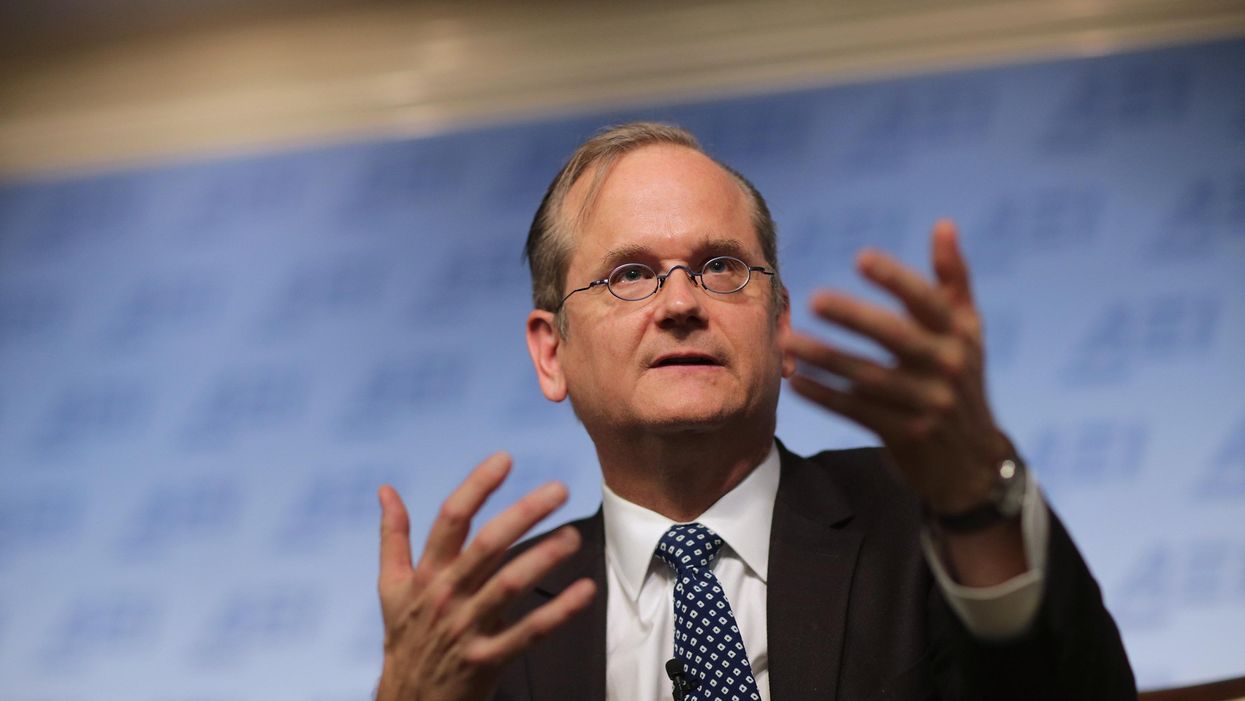This is the 10th installment of an ongoing Q&A series.
As Democrats take power in Washington, if only tenuously, many democracy reform groups see a potential path toward making the American political system work better. In this installment, Lawrence Lessig, founder of Equal Citizens and a Harvard Law School professor, answers our questions about 2020 accomplishments and plans for the year ahead. His organization promotes reforms aimed at fixing the political system so that all citizens are represented equally. Lessig's responses have been edited for clarity and length.
First, let's briefly recap 2020. What was your biggest triumph last year?
A bunch of us reform organizations were focused on getting every presidential candidate to commit to fundamental, HR 1-or-better-like reform. We organized a string of town halls to secure that commitment, beginning with Andrew Yang and ending with Bernie Sanders.
We also succeeded in getting the Supreme Court to clarify the power of presidential electors. That decision shut down any effort to get electors to vote contrary to their pledge and — more importantly in this election — provided a clear signal that the court would not tolerate any legislatures voting contrary to how the people had voted.
And your biggest setback?
It seems strangely narcissistic to think about individual setbacks in the middle of a pandemic. The setback we suffered was the setback the world suffered, the U.S. more than it had to — the pandemic.
What is one learning experience you took from 2020?
The profound wisdom in Margaret Mead's words: "Never doubt that a small group of thoughtful, committed citizens can change the world; indeed, it's the only thing that ever has." Fundamental democratic reform has been elevated to the center of national political attention. We've been working with many others for more than a decade to make this happen. But "we" have not been millions; "we'' have just been those convinced and committed to making this happen.
Now let's look ahead. What issues will your organization prioritize in 2021?
We will continue to press HR 1 as hard as we can. But we're incredibly excited about a new project that we'll launch as a beta in the next few weeks: a massive virtual deliberation project. We hope it will enable hundreds of thousands to deliberate in small groups, first about the Electoral College, and then, if that's successful, about other issues of democracy as well.
How will Democratic control of the federal government change the ways you work toward your goals?
After HR 1, we're shifting our focus to people, not Congress. We want to demonstrate broad and deep understanding of issues of democratic reform across America.
What do you think will be your biggest challenge moving forward? And how do you plan to tackle it?
America has a media culture with a severe attention-span problem — easily distracted, not easily focused. But unlike an ADHD kid, there's no clear treatment. Somehow we need to figure out how to engage the public with seriousness and serious issues. Slow democracy, not democracy tweeted.
Finish this sentence. In two years, American democracy will ...
have begun in earnest. HR 1 will have suppressed gerrymandering, and all the techniques to suppress the vote; it will have empowered small-dollar donations to support campaigns; and the people will have the tools to engage in serious, informed deliberation about important issues facing our democracy (and if not, admit it — even just one of these will be incredible!).




















